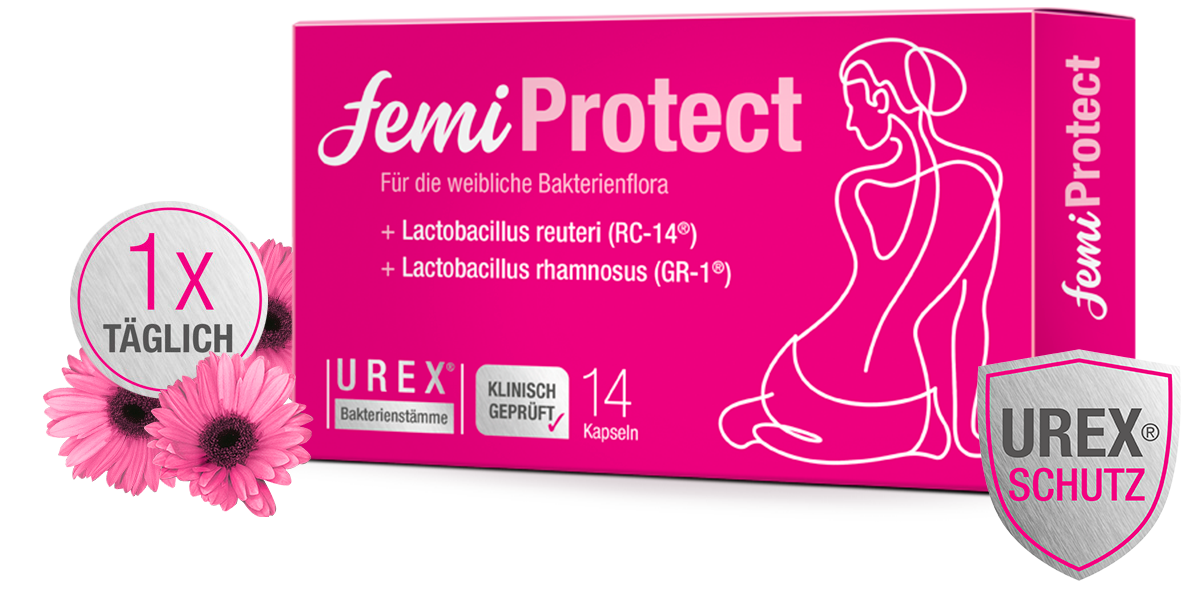
- Nahrungsergänzungsmittel zur Unterstützung der weiblichen Bakterienflora
- Enthält die patentierte und klinisch ausgezeichnet dokumentierte UREX® Stammkombination
- Erhältlich in 2 Packungsgrößen: 14 & 28 Stück
- Exklusiv in Ihrer Apotheke
Einfache Anwendung
- Praktische, kleine Kapsel zum Schlucken: Ideal auch während der Periode
- Nur 1 x täglich einnehmen (1-2 Kapseln)
- Keine Kühlung notwendig!
Klinisch bestätigt
- Eine Kapsel femiProtect enthält mind. 2 Milliarden koloniebildende Einheiten (KBE) der UREX® Stammkombination
- Klinisch geprüft für Frauen ab 16 Jahren, pre- und postmenopausale Frauen sowie Schwangere & Stillende.
Für alle Frauen geeignet
- Klinisch geprüft für Frauen ab 16 Jahren
- Geeignet in der Schwangerschaft und der Stillzeit
- Hochverträglich: frei von Farb- bzw. Konservierungsstoffen, Laktose, Gluten und tierischen Inhaltsstoffen (vegan)

femiProtect und UREX®
femiProtect enthält die patentierten und klinisch untersuchten UREX® Bakterienstämme Lactobacillus reuteri (RC-14®) und Lactobacillus rhamnosus (GR-1®). Beide Stämme wurden aus dem weiblichen Urogenitaltrakt isoliert und kommen natürlich im weiblichen Körper vor.
UREX® wurde insgesamt in über 130 wissenschaftlichen Publikationen beschrieben und gilt das als am besten dokumentierte Probiotikum-Duo weltweit. Der Untersuchungszeitraum erstreckt sich auf bis zu 12 Monate.1
UREX® zeigte in zahlreichen klinischen Untersuchungen mögliche positive Effekte:
- Wiederherstellung und Unterstützung einer gesunden Vaginalflora (z.B. bei bakterieller Vaginose oder Antibiotikaeinnahme)
- Verbesserung von bakteriellen Ungleichgewichten im Urogenitaltrakt (Dysbiose)
- Bei irregulärem vaginalen Ausfluss (z.B. durch Pilzinfektionen)

 Apotheke in deiner Nähe finden
Apotheke in deiner Nähe finden